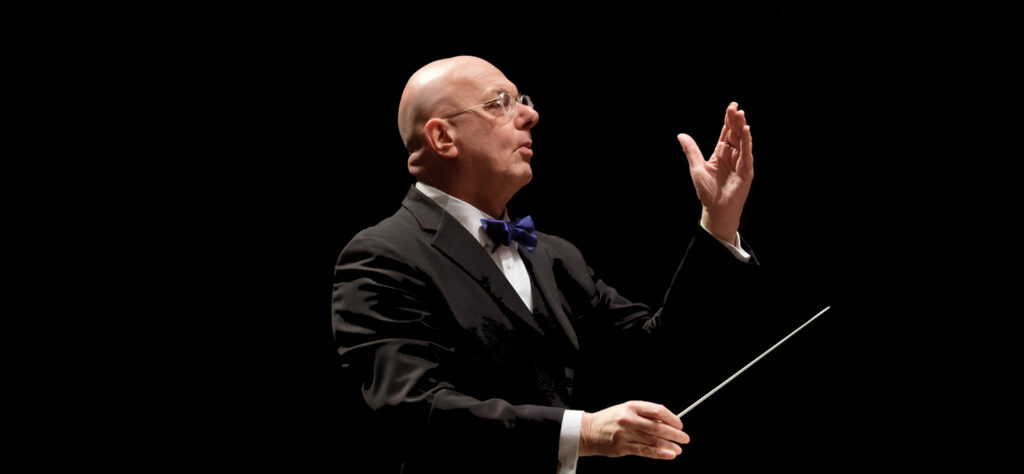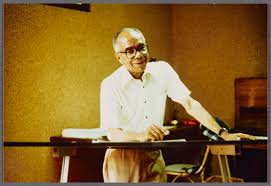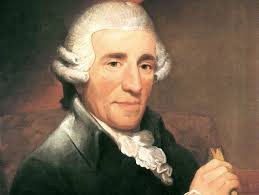
by Kevin T. McEneaney
At Bard College’s Fisher Center for Performing Arts, The Orchestra Now performed its last concert of the academic year under the baton of Leon Botstein. The program consisted of rarely performed works.
Edgar Varèse (1883-1965) was a French Dadaist composer who came to the United States in 1918 after more than a decade of his musical work was destroyed in a Berlin fire. Promoted by Leopold Stokowski, he Varèse barely made a living. Known as the “Father of Electronic Music,” he became the inspiration for Frank Zappa’s “The Mothers of Invention.” His short piece Hyperprism for percussion and winds opened the concert and lived up to novelist Henry Miller’s description of Varèse as “the stratospheric colossus of sound.” The final climax of this five-minute piece melded the dissonance of percussion and winds to a unified, thunderous, apocalyptic bang. after which the only appropriate word appeared to be “Wow!”
Previously, Hindemith’s compositions had been within an avant-garde framework that explored dissonance and abrupt transitions with rhythmic and contrapuntal modes like the Varèse icebreaker. This return to harmonic and melodic conflict was praised by Theodore Adorno and gave the violinist-composer a new direction to his career, both intellectually, more personal, and attracting a more popular audience, as its December 1930 premiere in Chicago indicated. The opening funeral elegy appears to be for Hindemith’s previous style, while the following three flowing movements announce various melodic directions for meditation and even the limited use of classical repetition.
The third movement, my favorite, was introduced by the brash brass, yet the movement unexpectedly turned to the piano and harp, exquisitely performed by Bard professor Blair McMillan and graduate student Taylor Ann Fleshman, which for me was the climatic investigation into the archive of memory in the spirit of Jean-Jacques Rousseau’s Reveries, the music becoming less identifiable as Germanic. The gentle stroll of the fourth movement with piano, harp, and Jarrod Briley with sensitive nuance on tuba, concludes with gentle brass resonance in C-major where the trumpet of Guillermo García Cuesta stood out, as if indicating a new rebirth.

While the American composer Ulysses Kay (1917-1995), who learned to play piano, violin, and saxophone from his uncle King Oliver, is one of this country’s most important 20th century neo-classical composers, his work is not as widely known as it should be. He studied under Hindemith at Yale and wrote 20 works for large orchestra and five operas, the last being Frederick Douglass (1991).
Scherzi musicali (1968), conducted by Andrés Rivas, offers a twelve-tone composition where all twelve notes circulate through the musical scale. The opening movement displays the influence of Varèse with dissonance competing with a vortex of twisting melodic lines. Similar to the Varèse dialectic, the wind quartet competes with the strings. The third movement features only winds, while the fourth movement fiercely pits the strings against the winds with increasing volume and dissonant shifts, achieving a colossal, resounding resolution—similar in concept to the Varèse conclusion.

Picking up on the theme of C major, Franz Joseph Haydn’s Symphony No. 48 (Maria Theresa), conducted by Leon Botstein, offers a feast of strings. Opening with pastoral song, it turns to formal salon song in the second movement, then to lively formal dance, and on to the general gaiety of a party distilled in memory, as if the recollection of the event was a gem to be played over and over in one’s mind.
While the concert opened with a bang, it ended with the sweetness of violins gently messaging the inner rings of one’s ear, as one realized that Haydn was indeed the august master of the string symphony, which is why his large body of over a hundred symphonies will live as long as strings are played. The expert unified modulations of the orchestral strings enhanced the implication that orchestras are ultimately about strings.
If you missed the live-stream, you may hear this concert for free here.